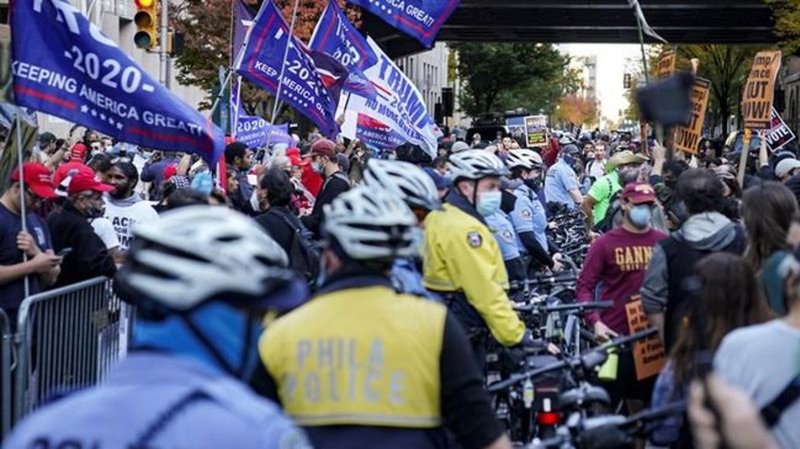
Regardless of election, uniting the U.S. a mission impossible for next president
PHILADELPHIA — The mission for Joe Biden, should he prove to be elected: bring the United States back together.
Even fictional superspy Ethan Hunt might think twice about that one.
If they prove anything, the long-delayed results of this week’s presidential election show the country is as divided as ever.
That was clear enough from the scene in Philadelphia this week, with Donald Trump’s devotees protesting the outcome across the street from giddy Biden supporters.
